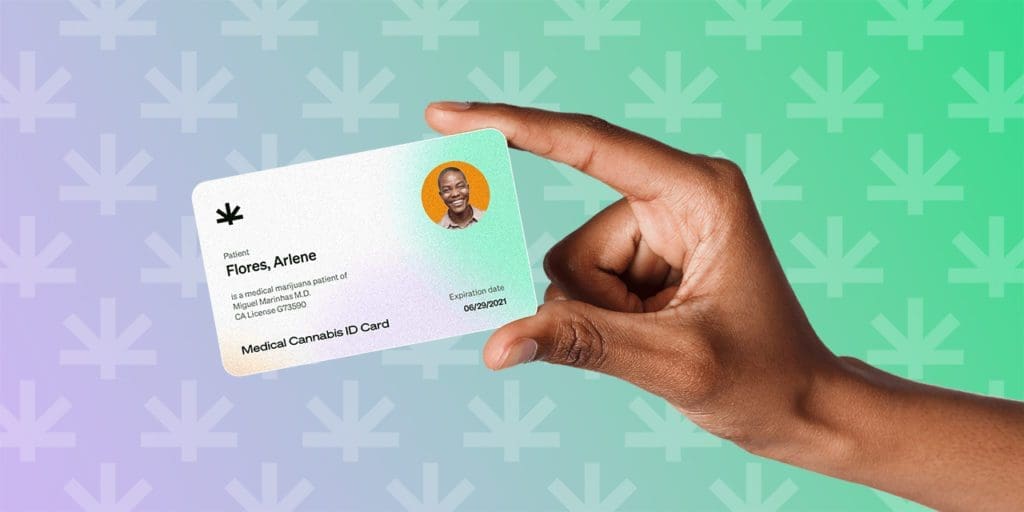Medical Marijuana Card Eligibility: Who Can Benefit and How to Apply
Wiki Article

With the rise of alternative treatments for chronic and debilitating conditions, medical marijuana has become a widely accepted and effective option. However, accessing it legally requires obtaining a medical marijuana card. This detailed guide outlines who qualifies, what conditions are eligible, and how to apply for a medical marijuana card in the United States and other jurisdictions where it is legalized.
What Is a Medical Marijuana Card?
A medical marijuana card is a state-issued identification that allows patients to legally purchase, possess, or grow medical cannabis for therapeutic purposes. It serves as proof that a licensed healthcare provider has approved cannabis as part of your treatment plan.
Depending on your state, the card can grant access to:
-
Licensed dispensaries
-
Higher possession or dosage limits
-
Tax exemptions in some jurisdictions
-
Legal protection from marijuana-related criminal charges
Who Is Eligible for a Medical Marijuana Card?
Eligibility varies by region, but most states in the U.S. and many international jurisdictions follow similar guidelines. Generally, individuals who meet the following criteria can apply:
-
Have a qualifying medical condition
-
Are 18 years or older (or have parental/guardian consent if a minor)
-
Are a legal resident of the state or country issuing the card
-
Have a recommendation or certification from a licensed physician
In some areas, nurse practitioners and physician assistants may also issue recommendations.
Qualifying Conditions for Medical Marijuana Use
Each state or country maintains a list of approved medical conditions for marijuana treatment. The most commonly accepted conditions include:
Chronic Pain
Persistent pain lasting longer than six months, including:
-
Arthritis
-
Fibromyalgia
-
Back pain
-
Migraines
Cancer
Medical marijuana is often used to manage:
-
Pain and inflammation
-
Nausea caused by chemotherapy
-
Appetite loss
Multiple Sclerosis (MS)
Cannabis can reduce:
-
Muscle spasms
-
Neuropathic pain
-
Mobility issues
Epilepsy and Seizure Disorders
Particularly in children, CBD-rich cannabis strains are used to reduce seizure frequency and intensity.
PTSD and Mental Health Conditions
Many states include:
-
Post-Traumatic Stress Disorder (PTSD)
-
Severe anxiety
-
Clinical depression
-
Insomnia
Other Qualifying Conditions
Depending on your jurisdiction, you may also qualify with:
-
Glaucoma
-
HIV/AIDS
-
Crohn’s disease
-
Parkinson’s disease
-
ALS (Lou Gehrig's Disease)
-
Autism
-
Endometriosis
How to Apply for a Medical Marijuana Card
Step 1: Check State or Regional Laws
Each region has its own set of laws. Visit your state’s Department of Health website to view eligibility, approved physicians, and the application process.
Step 2: Consult with a Certified Physician
You must schedule a consultation with a licensed medical marijuana doctor. In many cases, this can now be done via telehealth. The physician will:
-
Review your medical history
-
Confirm your diagnosis
-
Determine if cannabis is an appropriate treatment
If approved, they will provide a written recommendation or certification.
Step 3: Submit Your Application
Most states require the following:
-
Completed online or paper application
-
Doctor’s certification
-
Proof of residency (ID, utility bill)
-
Application fee (varies by state, typically $50–$150)
Step 4: Receive Your Card
Processing times range from 1 to 4 weeks, depending on your state. Once approved, you'll receive a physical or digital medical marijuana card.
Benefits of Holding a Medical Marijuana Card
Holding a valid card offers significant advantages:
-
Legal protection under state law
-
Access to regulated dispensaries with quality products
-
Higher possession limits than recreational users
-
Lower age threshold for medical use
-
Tax exemptions in some jurisdictions
-
More treatment options, including higher-potency strains and concentrates
Can Minors Apply for a Medical Marijuana Card?
Yes, in many jurisdictions minors can apply for medical marijuana use under strict conditions. Requirements include:
-
A legal guardian’s consent
-
A certification from two physicians in some states
-
Specific qualifying conditions (e.g., epilepsy, cancer, autism)
The guardian typically acts as the designated caregiver responsible for administering and purchasing cannabis on behalf of the minor.
Renewing Your Medical Marijuana Card
Most medical marijuana cards are valid for one year. Renewal involves:
-
A follow-up consultation with your healthcare provider
-
Payment of renewal fees
-
Updated documentation (especially if your address or diagnosis has changed)
Some states allow automatic renewals, while others require a comprehensive reassessment.
Medical Marijuana and Employment: What You Should Know
Even with a valid card, employers are not always required to accommodate cannabis use, especially in federal or safety-sensitive jobs. Be aware of your local employment laws regarding:
-
Drug testing policies
-
Workplace safety regulations
-
Discrimination protections for medical cannabis users
Is Insurance Covered for Medical Marijuana?
Currently, most health insurance plans do not cover medical marijuana, as cannabis remains illegal under U.S. federal law. However, consultation fees with approved doctors may be eligible for Health Savings Accounts (HSAs) or Flexible Spending Accounts (FSAs).
Important Legal Considerations
Even with a medical marijuana card, there are limitations:
-
You cannot transport cannabis across state lines, even between legal states.
-
Driving under the influence is illegal and punishable by law.
-
Federal property restrictions still apply—avoid using cannabis on military bases, national parks, or federal buildings.
Conclusion: Take Control of Your Health, Responsibly
A medical marijuana card can provide safe, legal, and effective access to cannabis for those suffering from a wide range of conditions. Whether you deal with chronic pain, neurological disorders, or mental health challenges, cannabis may offer a therapeutic option that improves your quality of life.
Ensure you follow your state’s legal framework, consult with licensed professionals, and use your card responsibly to enjoy the full benefits of this progressive treatment approach.
Report this wiki page